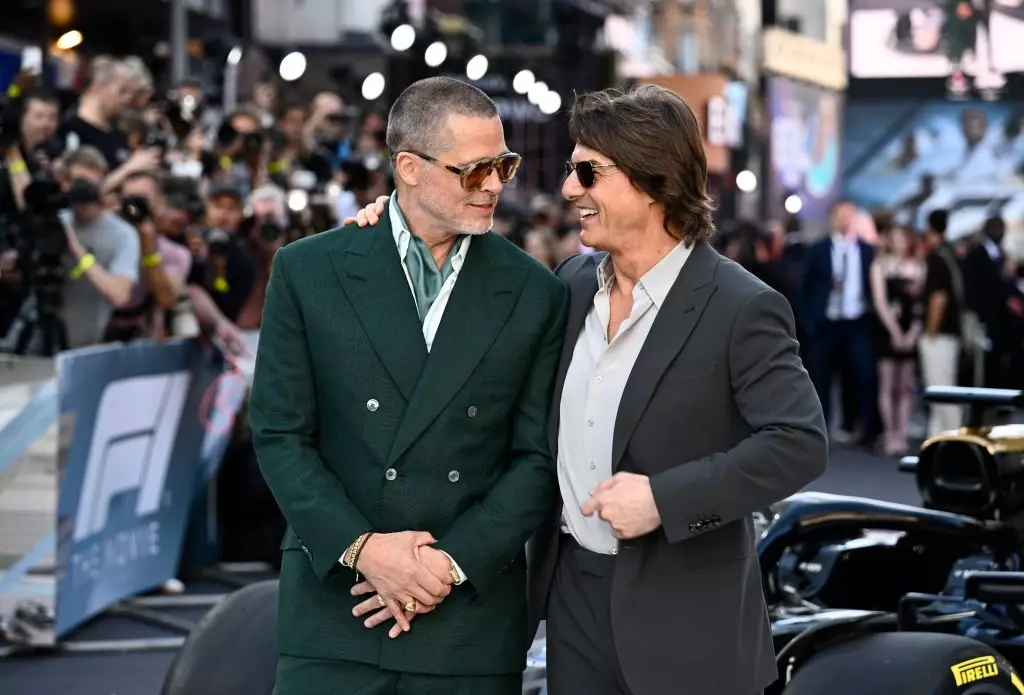Hollywood has long romanticized the high-speed world of racing, but beneath the glamour lies a recurring failure to deliver genuine authenticity. Films like Ford v Ferrari capture the surface thrill of racing but often distort or simplify complex stories and personalities to fit narrative moldings that prioritize entertainment over truth. The allure of star power, with figures like Brad Pitt and Tom Cruise attached to projects, often overshadows the need for nuanced portrayals rooted in reality. Such oversights create an illusion that celebrity-driven productions can perfectly encapsulate the gritty, disciplined world of motorsport—yet, more often than not, they fall into the trap of superficial drapery and exaggerated dramatization.
The industry’s focus on spectacle compounds this problem. Significant investments are made to reproduce roaring engines, daring races, and dramatic crashes, but in doing so, filmmakers tend to neglect the human elements—the perseverance, failures, and sacrifices of real racers—that make motorsport intriguing. These omissions result in movies that are more about Hollywood sensationalism than a meaningful or truthful representation of the sport’s formidable challenges.
Star Power vs. Genuine Passion
The involvement of Hollywood actors such as Brad Pitt and Tom Cruise speaks volumes about the industry’s obsession with glamour rather than authenticity. When stars are attached to racing projects, their star appeal often becomes the primary selling point—an attempt to attract wider audiences—rather than a sincere interest in motorsport. This dynamic dilutes the integrity of racing narratives, turning what should be gritty dramas into shiny spectacles designed to pull in viewers with recognizable faces.
In the case of Pitt and Cruise’s initial involvement in Ford v Ferrari, their desire to participate was driven less by a passion for racing and more by the potential for box office success and fame. Their personal pursuits—whether Pitt’s expressed interest in driving or Cruise’s longstanding affinity for thrill-seeking roles—often overshadow the stories of lesser-known but equally vital figures in racing history. Consequently, these films become celebrity vehicles rather than tribute pieces rooted in racing culture and history.
The Misguided Quest for Sequels and Continued Glamorization
Despite the commercial success of movies like Ford v Ferrari, the industry’s tendency to chase sequels and expanded universes perpetuates a disconnect from the true essence of racing. The talk of potential follow-ups, whether through speculative plans for F1-themed movies or spin-offs centered on characters like Pitt’s Sonny Hayes, exemplifies Hollywood’s obsession with franchises over authenticity. The controversy around budgets, studio objections, and casting choices often overshadow the genuine stories of grit and innovation that define motorsport.
Moreover, the commitment to sequels is frequently driven by financial incentives rather than artistic integrity. The desire to keep audiences engaged with familiar faces and settings risks turning racing movies into mere marketing franchises, stripping away their potential to educate and inspire. Instead of serving as windows into a demanding and intricate sport, these projects risk becoming another spectacle in a long line of Hollywood clichés.
The Illusion of Progress and the Need for Artistic Responsibility
There is a dangerous complacency in Hollywood’s approach to racing films—the belief that big stars and high budgets can substitute for accurate storytelling. This attitude dismisses the importance of respecting the sport’s technical complexity and the personal struggles of racers. When filmmakers prioritize entertainment over truth, they contribute to a distorted image of motorsport that may inspire superficial admiration but fails to foster genuine understanding or appreciation.
Realistic portrayals require a commitment to research, authenticity, and humility—a recognition that racing’s true drama resides not just in speed but in human resilience and ingenuity. Hollywood, however, often chooses the easier path: crafting narratives that entertain but do little to honor the sport’s genuine grit. This superficial treatment risks alienating serious fans and undermining the sport’s rich history, reducing it to a backdrop for Hollywood fantasies rather than a meaningful subject for compelling storytelling.
A Call for More Responsible Storytelling
What motorsport enthusiasts—and discerning viewers—deserve is a shift toward more responsible filmmaking that respects the sport’s depth. It requires filmmakers to embrace complexity, accurately portray racers’ sacrifices, and avoid the trap of commodifying authenticity for exaggerated drama. True racing stories are inherently compelling—they are about risk, passion, and human perseverance, themes that transcend racing itself and resonate universally.
The challenge remains for Hollywood to resist the siren song of superficial storytelling and commit genuinely to capturing the spirit of motorsport. Only through such a shift can racing films serve not just as entertainment but as authentic reflections of a sport that demands courage, discipline, and unyielding resilience. Until then, the illusion of authenticity persists, leaving audiences with a distorted picture of what real racing entails—and undermining the very stories that could truly inspire.

Leave a Reply